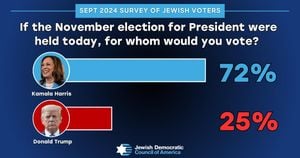Former police officer Adam Coy was found guilty of murder on Monday for the shooting death of Andre Hill, marking a significant moment for accountability within law enforcement. The shooting occurred on December 22, 2020, when Hill, a 47-year-old Black man, was fatally shot four times by Coy as he emerged from his friend's garage, holding only a cellphone and keys. This tragic incident has drawn national attention to issues of police conduct, civil rights, and the treatment of unarmed individuals.
The Franklin County jury deliberated for approximately two and a half days before reaching their verdict. Alongside murder, the jury also found Coy guilty of felonious assault and reckless homicide. The verdict was met with relief from Hill's family and advocates, who had waited nearly four years for justice. Benjamin Crump, the civil rights attorney representing Hill's family, stated, "This verdict delivers a measure of justice for Andre Hill's family, who have waited nearly four years to see criminal accountability for his tragic and unnecessary death. Today’s verdict underscored no one is above the law, including those sworn to uphold it."
During his time on the stand, Coy claimed he feared for his life, alleging he thought Hill was brandishing a gun. When he called Hill out of the garage, he believed he spotted Hill holding what looked to be a silver revolver. This weapon turned out to be nothing more than Hill’s key ring. Coy expressed his emotional turmoil after the incident, saying, "I thought I was going to die. I was horrified" when he realized his mistake. During the trial, the prosecution vigorously argued against Coy's self-defense claims, stating he acted recklessly and contrary to police training protocols.
Judge Stephen McIntosh revoked Coy's $1 million bond after the verdict, leading to his immediate incarceration. He is scheduled for sentencing on November 25 and could face life without parole. The gravity of Coy's actions and the circumstances surrounding them have sparked discussions on the use of force by police officers and the need for reform within police departments across the nation.
Following the shooting, the Columbus police department swiftly fired Coy. A month after the incident, he was indicted on charges of murder. Last year, the city settled with Hill's family for $10 million, the largest wrongful death settlement awarded by the city to date. This financial settlement came in conjunction with the implementation of "Andre's Law," which mandates all officers to activate their body cameras when responding to calls and to provide immediate medical aid to any individual injured during law enforcement engagements.
The body camera footage, which did not capture audio due to Coy's failure to activate the device until after the shooting, revealed the chaotic scene following Hill's shooting. It showed Hill lying on the ground, evidently needing medical attention, but officers failed to administer it for nearly ten minutes. Disturbingly, it also captured Hill's friends explaining to the officers present at the scene, "He was bringing me Christmas money. He didn't do anything.", underscoring the tragedy of Andre Hill being gunned down as he followed police orders.
The emotional weight of the verdict was palpable within the courtroom, with Hill's family visibly moved. Shawna Barnett, Hill's sister, expressed hope for justice stating, "He would be glad justice prevailed. He would be glad the truth was heard and it wasn't covered up. […] There were no distractions. He would be happy the outcome was what it was." Nevertheless, the mood was contrasting as officers and supporters of Coy remained stoic, highlighting the deep fractures within the community concerning police legitimacy and accountability.
Opinions about the verdict vary widely among community members and law enforcement officials. Brian Steel, president of the Fraternal Order of Police Capital City Lodge No. 9, criticized the trial as politically driven and warned of its unsettling potential ramifications on police conduct moving forward. He expressed, "This sends a message your split-second decision can lead to murder conviction," adding, "Officers are willing to die for their community. They're not willing to go to prison for their job."
On the other hand, attorney Anthony Pierson, representing the state, emphasized the clarity of the jury's decision, feeling it affirms accountability measures for police actions. He stated, "This case isn't about someone resisting arrest. It’s about a man following police orders and being killed for it." Pierson reflected on the rarity of such convictions, highlighting the long-standing dilemma of police accountability within the U.S. legal system.
The trial also revisited broader national conversations about police use of force, racial injustice, and the past several years of unrest prompting calls for reform across various cities. With protests demanding police accountability gaining momentum, Hill’s tragic death has become part of this larger narrative seeking change within law enforcement institutions.
Ben Crump reiterated the significance of the jury's decision, hoping it would catalyze reforms nationwide. "When their actions violate their duty to protect and serve, they will face the consequences," he stated. While many experts acknowledge the verdict as a pivotal step toward justice, it also opens up important questions on how society balances the safety of its officers with the duty to protect its citizens, especially those vulnerable and unarmed.
This conviction marks not only the first time a Columbus police officer has been found guilty of murder related to actions taken during service, but it sets a precedent for future cases and the jurisprudence surrounding policing practices across America. The outcomes of this case will likely influence how cases of police encounters are dealt with and could be pivotal in shaping future legislation aimed at protecting vulnerable communities.
Despite the trial's conclusion, activists and observers alike are well aware of the systemic issues surrounding police violence and racial discrimination still present today. They are determined to keep pushing for meaningful reforms to avoid future tragedies similar to Hill’s. While applause and tears flowed outside the courtroom following the verdict, the fight for justice and accountability remains alive and well.



